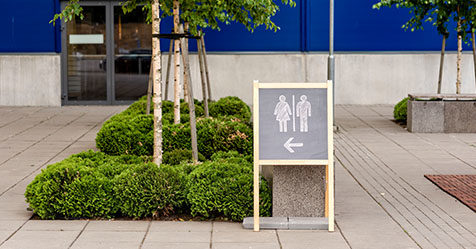Testing Campus Sewage for Coronavirus
Students at Utah State University quarantined after wastewater testing in residence halls
Facility managers at university campuses across the country have implemented various methods to control the spread of COVID-19, such as enhanced cleaning protocols and frequent student testing. Officials at Utah State University in Logan, Utah, have discovered evidence of the virus on campus through a different method—the testing of sewage.
The school found elevated amounts of the SARS-CoV-2 virus in wastewater samples collected from four residence halls at the university, CNN reports. In response, school officials issued a safety alert this week calling for mandatory testing and quarantine of all 287 students living in the four residence halls. Classes started Monday and some of the students had just moved into their rooms.
Wastewater sampling began July 1 on the campus to provide an early alert to address potential COVID-19 cases. The school decided to test wastewater because it is less invasive than testing students and it allows for the quarantine of campus residents before they become symptomatic.
In mid-August, the U.S. Centers for Disease Control and Prevention (CDC) announced the creation of the National Wastewater Surveillance System. Under this system, sewage from facilities can be tested for genetic material from the novel coronavirus. The virus can be found in feces from people who are sick and from those who don’t yet have COVID-19 symptoms.


